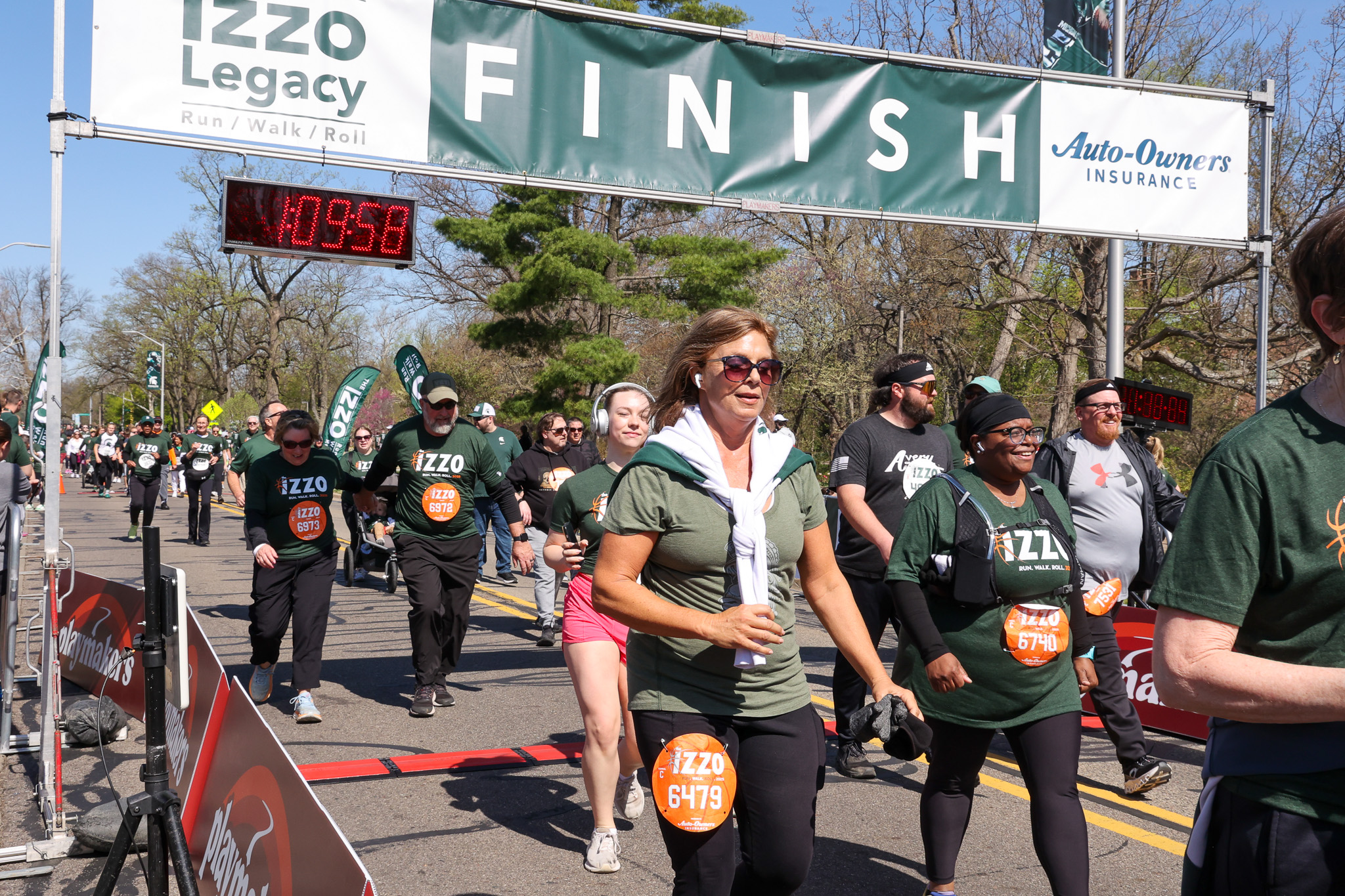Walking For Just 5 Minutes Does This Cool Thing to Your Brain, Per New Science
June 3, 2025 - Korin Miller | Women's Health Magazine

Participants walking at the Izzo Legacy 5K in April 2025. Photo by Lindsay Gluf-Magar. Photo not part of the original article.
Originally published on June 3, 2025 via womenshealthmag.com
- A new study found five minutes of a certain type of exercise can boost your brain health, especially in older adults.
- Thanks to the elevation in your heart rate with "brisk" physical activity, more blood flow goes to your brain.
- The key is to exercise to the point where you notice heart rate and breathing rate increase.
Taking care of your brain requires a 360 approach, and includes simple things like eating well, exercising regularly, and constantly challenging your mind by learning and trying new things. But new research also suggests that logging just five minutes of a particular exercise can help give your brain a big boost, too.
The study, which was published in Age and Aging, found that doing short bursts of exercise that raise your heart rate can help enhance cognitive performance, especially in older adults. But what kind of exercise are we talking about and why does it help? Here’s the deal.
Meet the experts: Clifford Segil, DO, is a neurologist at Providence Saint John’s Health Center in Santa Monica, CA; Amit Sachdev, MD, is the medical director in the Department of Neurology at Michigan State University; Audrey Collins, PhD, is the lead study author and a post-doctoral research scientist with AdventHealth.
What did the study find?
For the study, researchers analyzed data from 585 older adults between the ages of 65 and 80 who participated in the longitudinal IGNITE trial. The researchers looked at a range of things, including the participants’ sleep habits, physical activity, and sedentary behavior over 24 hours, and stacked that against their cognitive performance.
On a macro level, the researchers found that people who did more exercise had better brain health. When they did less, it seemed to decline. But when they dug into the specifics, they found that doing just five minutes of exercise that gets your heart rate up—like a brisk walk, water aerobics, or a light jog—was linked with better cognition.
Specifically, when people did more moderate-to-vigorous physical activity like brisk walking, they had better processing speed, (how fast your brain thinks), executive function (how well you plan, focus, and multitask) and working memory (your ability to store information for short periods of time).
Why is brisk walking good for you?
The big perk of brisk walking is that it can get your blood pumping, says Clifford Segil, DO, a neurologist at Providence Saint John’s Health Center in Santa Monica, CA. “Brisk walking increase blood flow to your legs and gets your heart rate up,” he says. “Any time your heart rate goes up, the flow of blood to your head is increased.”
Exercise and movement in general is helpful for brain health, explains Amit Sachdev, MD, medical director in the Department of Neurology at Michigan State University. “What’s good for the body is usually good for the brain,” he says.
Want more walking inspo? Join WH+ to get the exclusive 4-week walking plan that burns fat and builds muscle at the same time.
On the flip side, skipping your daily movement goals or workout isn’t great for your brain health either. “Being sedentary or a couch potato is bad for your bones, nerves, heart, muscles, and brain,” Dr. Segil says.
Can effects really happen in just 5 minutes?
According to the study results, yes, although the greatest is largest in people who are usually sedentary. The researchers specifically wrote this: “Moving from ~1 minute of moderate-to-vigorous physical activity per day to ~6 minutes per day had the largest predicted differences in the domains of executive function/attentional control, processing speed, and working memory.”
What is considered “brisk” walking?
Brisk walking is basically any walk speed that gets your heart rate up. "Brisk walking involves moving at a pace where you notice an elevation in your heart rate and breathing rate, which reflects an increased intensity of physical activity," says Audrey Collins, PhD, lead study author and a post-doctoral research scientist with AdventHealth. "For example, walking at a leisurely pace is representative of low-intensity physical activity, while brisk walking at a faster pace moves into a moderate-intensity level."
So, next time you’re short on time for a full workout, consider at least taking a quick walk around the block. It’ll do your brain health a solid.

